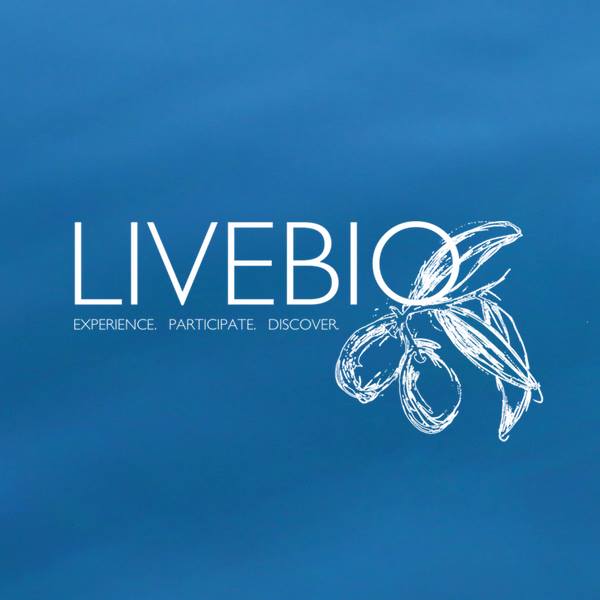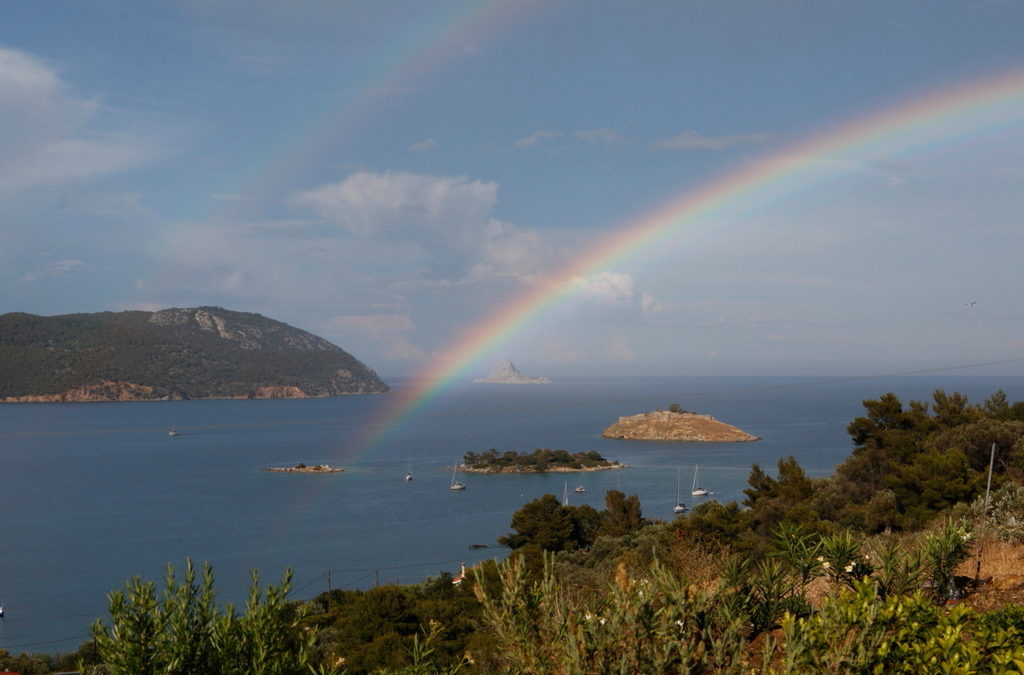After following the story of Theseus, the king of Athens born in Troezen (Trizina) from birth, his trek to Athens, the encounter with his father in Athens and the trip to Crete, this last blogpost presents the last part of our sequel: Theseus’ return to Athens and the assumption of the local hegemony.
The volcano of Santorini and the end of the Cretan civilization
As we mentioned, mythological story telling has this amazing freedom to intertwine disparate historical (and historic) events into a single procession of linear continuity. And so the legend goes that the killing of the Minotaur coincided with the eruption of the volcano of Santorini. The tremors from the fiery earthquake resulted into a massive tsunami wave that is known to have destroyed the Cretan civilisation.
– Oh shit Theseus, the earth is shaking! The gods are seeking vengeance for the killing of their high priest. We are going to die!
– Shut up and follow the string Ariadne. Let’s run to our ship!
As expected, our heroes made it to the ship in time and avoided the tsunami. In movie-like slow motion, they loaded it with water, food, fruits and Ariadne’s sister (Phaedra) and set sails. The first few days on the ship were full of joyous memories. Sun, sea, wine and the first time that the watchful eye of Minos could not threaten the clandestine couple.
– Cutie pie, explain to me. At the beginning you told me that you are the prince of Athens but now you tell me that you are the king. What is the truth? Are you a prince or a king?
– I am the king, of course, my dear!
– And why does your ship have black sails?
– Great idea! Crew: leave the black sails up!
Just like with most human relationships that get past the early days of romance, the one of Theseus and Ariadne started getting fraught with quarrels and pointless fights. Silly things such as the toothpaste tube and the toilet seat started damaging the delicate foundations of their Eros. Rumours have it that Phaedra, the cunning younger sister of Ariadne, also had a role to play, but let’s pretend that these are bas clas gossips for now and they do not reflect the upbringing and fine manners of our young prince.
The ship stopped on the island of Naxos for refuelling.
– Theseus, I am going to have a nap on the shore, I feel sea sick after so many days on board.
– Go and rest, my sweetie pie. Once our ship is full of goods, I will wake you up for departure.
– That’s great my king! Please do so, because as you know I have the tendency to sleep heavily and I don’t wake up easily.
Theseus needed no better plan. When the last load of fruit was secured in the cargo, he instructed the crew to set sail.
– What about Ariadne? asked young Phaedra with a devious smile.
– Oh, shoot! I think… I think I forgot her on the island. What a shame! Will you please hug me tightly for consolation?
King Aegeas and the name of the Aegean Sea
The king of Athens could not stop thinking about his son. Was he alive or had he been killed by the Minotaur? Each day of waiting felt like eternity. He went to the southernmost tip of the Attican peninsula (Cape Sounion) in order to observe the ship traffic.
As the vessel with the black sails became visible from the high hills, the king lost the earth underneath his feet. His beloved son was dead. Without further thoughts, king Aegeas jumped from the cliff and committed suicide.
It is one of the most incredible things about modern Greece, how millennia of history have carried through times and remind us the glorious past on a daily basis. And, several millennia later, the crystal blue waters that you can admire from your Live-Bio balcony are still called the Aegean Sea, in memory of the late king Aegeas.
There is so much more we could tell about Theseus. Other than a hero (with all the negative traits that human nature inevitably carries), he was an enlightened leader. Theseus was the one who united the ten municipalities of Athens, a move that set the most important cornerstone for the development of democracy in the city state. Klisthenes’ democratic system was based on the equal distribution of cratos (power) between the demos (the people) of the ten municipalities.
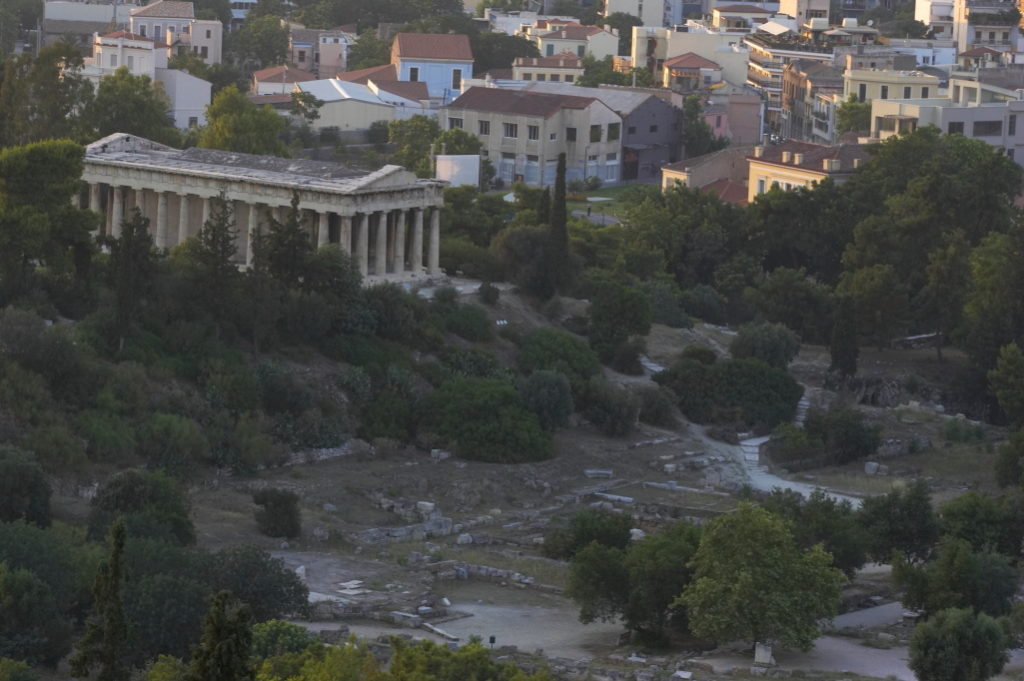
The temple of Hephaestus in Athens, referred to as the Temple of Theseus (Thission)
We cannot help but smile. Every morning that we wake up, we marvel at the gorgeous tiny island where Theseus was conceived. Its official name is Lazaretto, but the locals call it the Island of Karras. For us, it can only be the island of Theseus. And if you don’t believe us, pay attention to this 19th century artistic sketch of the island, drawn by a painter sitting on the foothills of what later became our Live-Bio home.
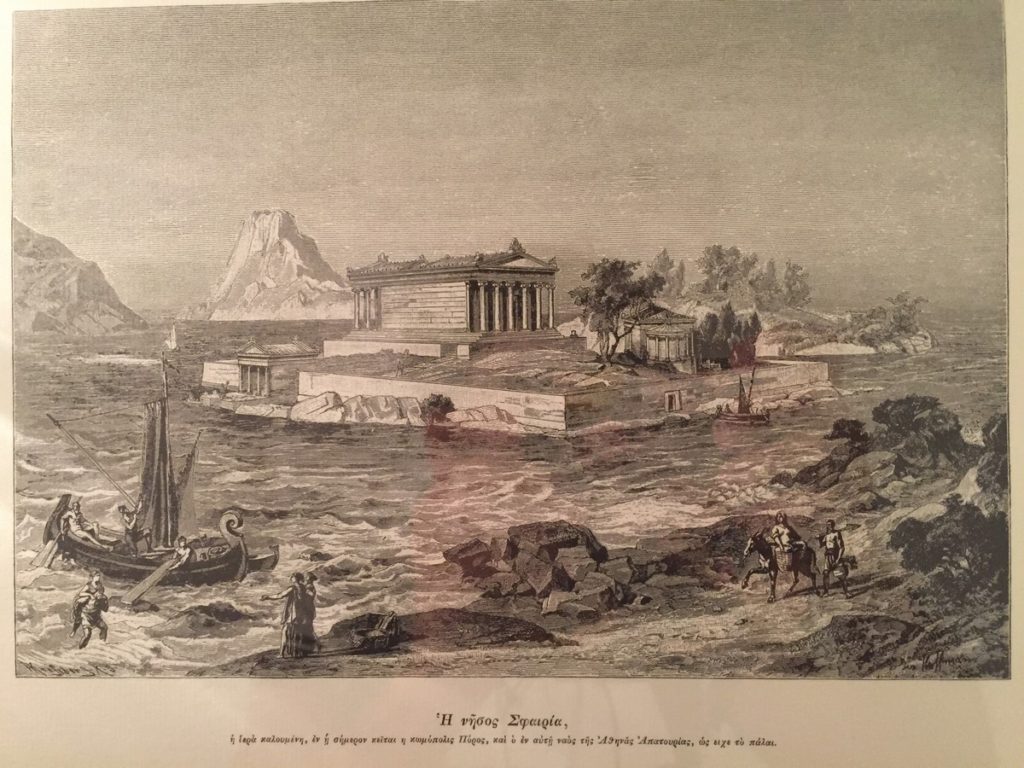
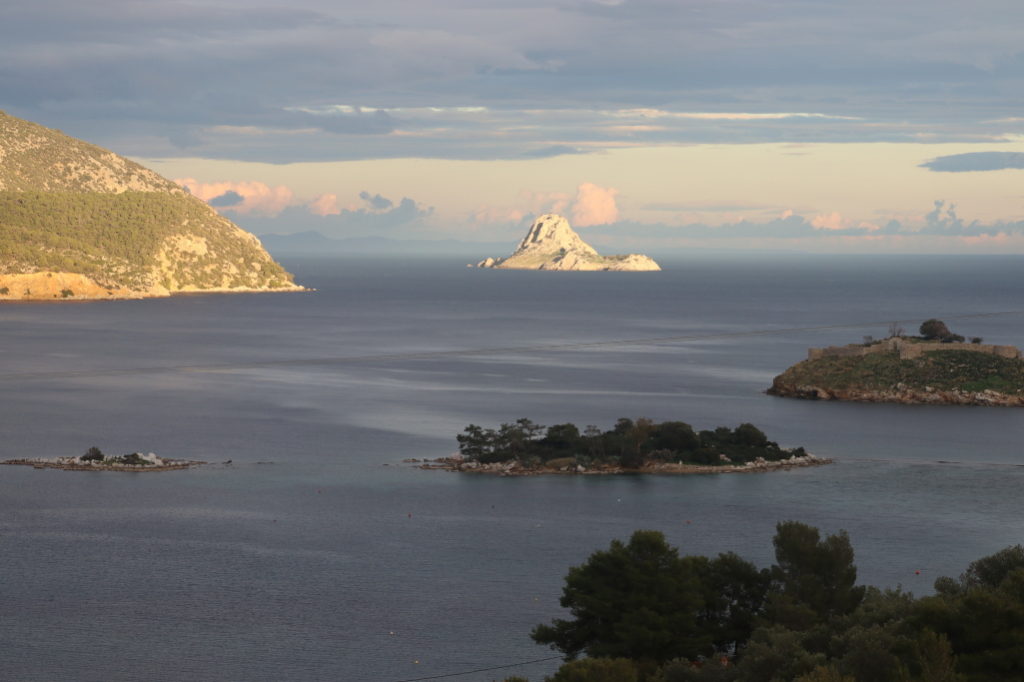
The sun, the sea and hospitality are not everything one can find in our beautiful land. A magical history was given birth right in front of our footsteps, a mythologically infused story that has left its marks on some of the most important achievements of human kind. Next time you visit us, don’t forget about all this!
